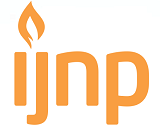Self-Efficacy and Mental Health of Mothers with Infants 0-6 Months on Breastfeeding Status: A Comparative Study
DOI:
https://doi.org/10.18196/ijnp.v8i1.20671Keywords:
breastfeeding status, exclusive breastfeeding, mental health, partial breastfeeding, self-efficacyAbstract
Background: Exclusive breastfeeding coverage in Bengkulu City has decreased over the last three years. Mothers' confidence in their abilities and good mental health become an essential part of supporting exclusive breastfeeding.
Objective: This study aims to examine the differences between self-efficacy and mental health of mothers based on their breastfeeding status, located in Bengkulu City.
Methods: The researchers employed a cross-sectional approach to analyze the study. The sample consisted of 72 mothers with infants aged 0-6 months. The researchers selected the samples using a purposive sampling technique. Data collection was carried out using a digital questionnaire (via Google Forms) through validity and reliability tests. Data were analyzed using an independent t-test. The mean self-efficacy score of partially breastfeeding mothers is lower than that of exclusively breastfeeding mothers. The mean mental health score of partially breastfeeding mothers is higher than that of exclusively breastfeeding mothers.
Results: The results of the independent t-test found that the average self-efficacy score of exclusively breastfeeding mothers was 55.58, and the average mental health score of partially breastfeeding mothers was 10.32.
Conclusion: There was a difference in the self-efficacy and mental health scores of partially and exclusively breastfeeding mothers. A high self-efficacy score indicates high maternal confidence. Meanwhile, high mental health scores indicate that mothers experience symptoms of psychological disorders. The achievement of successful exclusive breastfeeding is closely related to boosting self-assurance and preserving a mother's mental well-being.
References
Ahmed, A. H., & Rojjanasrirat, W. (2021). Breastfeeding Outcomes, Self-Efficacy, and Satisfaction Among Low-Income Women With Late-Preterm, Early-Term, and Full-Term Infants. Journal of Obstetric, Gynecologic & Neonatal Nursing, 50(5), 583–596. https://doi.org/10.1016/j.jogn.2021.06.010
Annuril, K. F., & Hermansyah, H. (2022). Impact of Pandemic Covid 19 on Anxiety Level of Pregnant Women in Bengkulu City. Proceeding B-ICON, 1(1), 226–232. https://doi.org/10.33088/bicon.v1i1.40
Assarian, F., Moravveji, A., Ghaffarian, H., Eslamian, R., & Atoof, F. (2014). The Association of Postpartum Maternal Mental Health With Breastfeeding Status of Mothers: A Case-Control Study. Iranian Red Crescent Medical Journal, 16(3). https://doi.org/10.5812/ircmj.14839
Awaliyah, S. N., Rachmawati, I. N., & Rahmah, H. (2019). Breastfeeding self-efficacy as a dominant factor affecting maternal breastfeeding satisfaction. BMC Nursing, 18(S1), 30. https://doi.org/10.1186/s12912-019-0359-6
Chen, T.-L., & Chien, L.-Y. (2022). Feeding self-efficacy and feeding outcome expectancy mediate the association between maternal depressive symptoms and responsive feeding. Acta Psychologica, 230, 103755. https://doi.org/https://doi.org/10.1016/j.actpsy.2022.103755
Dalili, H., Shariat, M., Nayeri, F., Emami, Z., Sahebi, R., & Sahebi, L. (2019). Exclusive Breastfeeding Duration and its Effect on the Health of the Children in Iran, a Meta Analysis. Journal of Pediatric Nursing, 48, e8–e14. https://doi.org/10.1016/j.pedn.2019.04.030
Dennis, C. (2003). The Breastfeeding Self‐Efficacy Scale: Psychometric Assessment of the Short Form. Journal of Obstetric, Gynecologic & Neonatal Nursing, 32(6), 734–744. https://doi.org/10.1177/0884217503258459
Dinas Kesehatan Provinsi Bengkulu. (2023). Laporan Tahunan Kinerja Dinas Kesehatan Provinsi Bengkulu Tahun 2022. In Dinas Kesehatan Provinsi Bengkulu.
Dinkes Provinsi Bengkulu. (2021). Profil Kesehatan Provinsi Bengkulu Tahun 2020. In Dinkes Provinsi Bengkulu.
EO, A., EO, O., OJ, K.-O., OM, I., & KA, O. (2020). Prevalence and predictors of postpartum depression among postnatal women in Lagos, Nigeria. African Health Sciences, 20(4), 1943–1954. https://doi.org/10.4314/ahs.v20i4.53
Esquivel, M. L., Vera, Y. F., Dennis, C.-L., Lye, S., Ruben, M. Q., González, C. F., Álvarez, G. V., Tamayo, V. P., & Rancel, M. H. (2022). Early predictors of short duration of exclusive breastfeeding among Havana women. Clinical Epidemiology and Global Health, 16(June), 101098. https://doi.org/10.1016/j.cegh.2022.101098
Figueiredo, B., Canário, C., & Field, T. (2014). Breastfeeding is negatively affected by prenatal depression and reduces postpartum depression. Psychological Medicine, 44(5), 927–936. https://doi.org/10.1017/S0033291713001530
Gebrekidan, K., Hall, H., Plummer, V., & Fooladi, E. (2021). Exclusive breastfeeding continuation and associated factors among employed women in North Ethiopia: A cross-sectional study. PLOS ONE, 16(7), e0252445. https://doi.org/10.1371/journal.pone.0252445
Gumussoy, sureyya, & Atan, Ş. (2019). The Effect of Maternal Adaptation on Breastfeeding Self-Efficacy. Worldwide Medicine, 0, 1. https://doi.org/10.5455/ww.53150
Ip, S., Chung, M., Raman, G., Chew, P., Magula, N., DeVine, D., Trikalinos, T., & Lau, J. (2007). Breastfeeding and maternal and infant health outcomes in developed countries. Evidence Report/Technology Assessment, 153, 1–186.
Kemenkes RI. (2020). Profil Kesehatan Indonesia tahun 2019. In Kemenkes RI.
Kemenkes RI. (2021). Profil Kesehatan Indonesia Tahun 2020. In Kementrian Kesehatan Republik Indonesia. Kementrian Kesehatan Indonesia. https://pusdatin.kemkes.go.id/resources/download/pusdatin/profil-kesehatan-indonesia/Profil-Kesehatan-Indonesia-Tahun-2020.pdf
Kemenkes RI. (2022). Profil Kesehatan Indonesia Tahun 2021. Kementrian Kesehatan Republik Indonesia.
Lechosa-Muñiz, C., Paz-Zulueta, M., Cayón-De las Cuevas, J., Llorca, J., & Cabero-Pérez, M. J. (2021). Declared Reasons for Cessation of Breastfeeding during the First Year of Life: An Analysis Based on a Cohort Study in Northern Spain. International Journal of Environmental Research and Public Health, 18(16), 8414. https://doi.org/10.3390/ijerph18168414
Li, F., Huang, C., Lin, Q., Xi, Y., Xiang, C., Yong, C., & Deng, J. (2022). Maternal Characteristics, Intention, Self-Efficacy, Perceived Social Support, and Exclusive Breastfeeding Practice: Structural Equation Modeling Approaches. Healthcare, 11(1), 87. https://doi.org/10.3390/healthcare11010087
Lin, H., Sun, L., Lin, J., He, J., Deng, A., Kang, M., Zeng, H., Ma, W., & Zhang, Y. (2014). Protective effect of exclusive breastfeeding against hand, foot and mouth disease. BMC Infectious Diseases, 14(1), 645. https://doi.org/10.1186/PREACCEPT-7344673251342033
Lou, Z., Zeng, G., Huang, L., Wang, Y., Zhou, L., & Kavanagh, K. F. (2014). Maternal Reported Indicators and Causes of Insufficient Milk Supply. Journal of Human Lactation, 30(4), 466–473. https://doi.org/10.1177/0890334414542685
Mekebo, G. G., Argawu, A. S., Likassa, H. T., Ayele, W., Wake, S. K., Bedada, D., Hailu, B., Senbeto, T., Bedane, K., Lulu, K., Daraje, S., Lemesa, R., Aga, G., Alemayehu, E., Kefale, B., Bechera, T., Tadesse, G., Galdassa, A., Olani, J., … Diriba, G. (2022). Factors influencing exclusive breastfeeding practice among under-six months infants in Ethiopia. BMC Pregnancy and Childbirth, 22(1), 630. https://doi.org/10.1186/s12884-022-04955-x
Panahi, F., Rashidi Fakari, F., Nazarpour, S., Lotfi, R., Rahimizadeh, M., Nasiri, M., & Simbar, M. (2022). Educating fathers to improve exclusive breastfeeding practices: a randomized controlled trial. BMC Health Services Research, 22(1), 554. https://doi.org/10.1186/s12913-022-07966-8
Premji, S., Khowaja, S., Meherali, S., & Forgeron, R. (2014). Sociocultural influences on newborn health in the first 6 weeks of life: qualitative study in a fishing village in Karachi, Pakistan. BMC Pregnancy and Childbirth, 14(1), 232. https://doi.org/10.1186/1471-2393-14-232
Prentice, A. M. (2022). Breastfeeding in the Modern World. Annals of Nutrition and Metabolism, 78(Suppl. 2), 29–38. https://doi.org/10.1159/000524354
Quinn, E. A., Sobonya, S., & Palmquist, A. E. L. (2023). Maternal perceptions of human milk expression output: An experimental design using photographs of milk. Social Science & Medicine, 324, 115871. https://doi.org/10.1016/j.socscimed.2023.115871
Saeed, O. B., Haile, Z. T., & Chertok, I. A. (2020). Association Between Exclusive Breastfeeding and Infant Health Outcomes in Pakistan. Journal of Pediatric Nursing, 50, e62–e68. https://doi.org/10.1016/j.pedn.2019.12.004
Sari, D., N., A., Saputro, G., A., Fiana, M., & Hanafi, N. (2019). Faktor Yang Mempengaruhi Breasfeeding Self Efficacy (BSE) Dalam Pemberian ASI Eksklusif Pada Ibu Hamil Trimester 3. IJNP (Indonesian Journal of Nursing Practices), 3(1). https://doi.org/10.18196/ijnp.3188
Shi, H., Yang, Y., Yin, X., Li, J., Fang, J., & Wang, X. (2021). Determinants of exclusive breastfeeding for the first six months in China: a cross-sectional study. International Breastfeeding Journal, 16(1). https://doi.org/10.1186/s13006-021-00388-y
Shiraishi, M., Matsuzaki, M., Kurihara, S., Iwamoto, M., & Shimada, M. (2020). Post-breastfeeding stress response and breastfeeding self-efficacy as modifiable predictors of exclusive breastfeeding at 3 months postpartum: a prospective cohort study. BMC Pregnancy and Childbirth, 20(1), 730. https://doi.org/10.1186/s12884-020-03431-8
Syam, A., Qasim, M., Kadrianti, E., & Kadir, A. (2021). Factor structure of the Edinburgh postnatal depression scale Indonesian version. Medicina Clínica Práctica, 4, 100238. https://doi.org/10.1016/j.mcpsp.2021.100238
Tuthill, E. L., McGrath, J. M., Graber, M., Cusson, R. M., & Young, S. L. (2016). Breastfeeding Self-efficacy. Journal of Human Lactation, 32(1), 35–45. https://doi.org/10.1177/0890334415599533
Van Breevoort, D., Tognon, F., Beguin, A., Ngegbai, A. S., Putoto, G., & van den Broek, A. (2021). Determinants of breastfeeding practice in Pujehun district, southern Sierra Leone: a mixed-method study. International Breastfeeding Journal, 16(1), 42. https://doi.org/10.1186/s13006-021-00390-4
WHO. (2022). Global Breastfeeding Scorecard 2022 Protecting Breastfeeding through Further Investments and Policy Actions. https://www.who.int/publications/i/item/WHO-HEP-NFS-22.6
Wood, N. K., Odom-Maryon, T., & Smart, D. A. (2022). Factors Associated With Exclusive Direct Breastfeeding in the First 3 Months. Nursing for Women’s Health. https://doi.org/10.1016/j.nwh.2022.05.006
Wu, Y.-H., Ho, Y.-J., Han, J.-P., & Chen, S.-Y. (2018). The influence of breastfeeding self-efficacy and breastfeeding intention on breastfeeding behavior in postpartum women. Journal of Nursing, 65(1), 42–50. https://doi.org/10.6224/JN.201802_65(1).07
Yesil, Y., Ekşioğlu, A., & Turfan, E. C. (2023). The effect of hospital-based breastfeeding group education given early perinatal period on breastfeeding self-efficacy and breastfeeding status. Journal of Neonatal Nursing, 29(1), 81–90. https://doi.org/10.1016/j.jnn.2022.02.013
Zhao, Y., Lin, Q., Wang, J., & Bao, J. (2020). Effects of prenatal individualized mixed management on breastfeeding and maternal health at three days postpartum: A randomized controlled trial. Early Human Development, 141, 104944. https://doi.org/10.1016/j.earlhumdev.2019.104944
Zubaran, C., & Foresti, K. (2013). The correlation between breastfeeding self-efficacy and maternal postpartum depression in southern Brazil. Sexual & Reproductive Healthcare, 4(1), 9–15. https://doi.org/10.1016/j.srhc.2012.12.001
Downloads
Additional Files
Published
Issue
Section
License
License
Articles published in the IJNP (Indonesian Journal of Nursing Practices) are licensed under a Attribution 4.0 International (CC BY 4.0) license. You are free to:
- Share — copy and redistribute the material in any medium or format.
- Adapt — remix, transform, and build upon the material for any purpose, even commercially.
This license is acceptable for Free Cultural Works. The licensor cannot revoke these freedoms as long as you follow the license terms. Under the following terms:
Attribution — You must give appropriate credit, provide a link to the license, and indicate if changes were made. You may do so in any reasonable manner, but not in any way that suggests the licensor endorses you or your use.
- No additional restrictions — You may not apply legal terms or technological measures that legally restrict others from doing anything the license permits.
Copyright
Authors who publish with IJNP (Indonesian Journal of Nursing Practices) agree to the following terms:
- Authors retain copyright and grant IJNP (Indonesian Journal of Nursing Practices) the right of first publication with the work simultaneously licensed under an Attribution 4.0 International (CC BY 4.0) that allows others to remix, adapt and build upon the work with an acknowledgment of the work's authorship and of the initial publication in IJNP (Indonesian Journal of Nursing Practices).
- Authors are permitted to copy and redistribute the journal's published version of the work (e.g., post it to an institutional repository or publish it in a book), with an acknowledgment of its initial publication in IJNP (Indonesian Journal of Nursing Practices).














